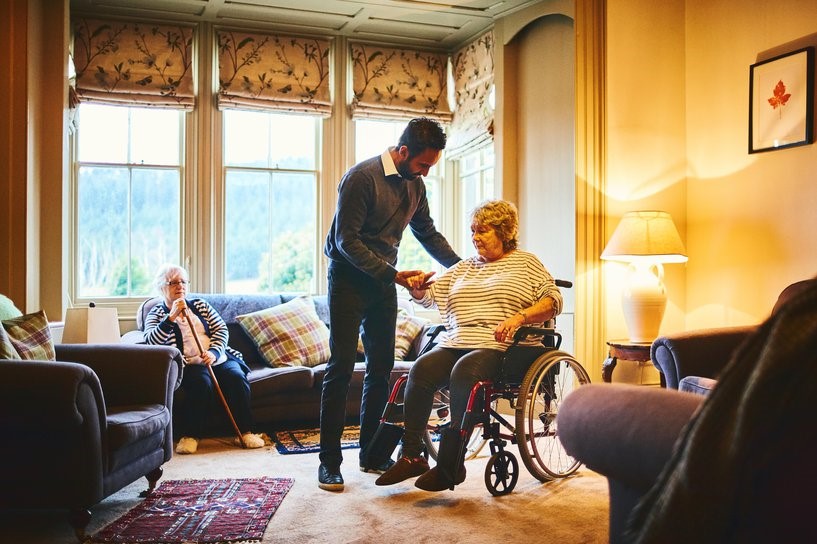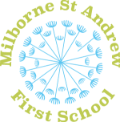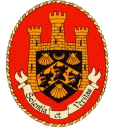
Health & Social Care
Why Study Health and Social Care at The Purbeck School?
Subject rationale:
 Health and social care equips students to discover the impact of positive and negative human development and to critically analyse how these factors affect our day-to-day lives. Health and social care enables students to explore areas that influence how we develop throughout life stages and in turn raise expectations of how we can live successful and healthy lives now and in our future.
Health and social care equips students to discover the impact of positive and negative human development and to critically analyse how these factors affect our day-to-day lives. Health and social care enables students to explore areas that influence how we develop throughout life stages and in turn raise expectations of how we can live successful and healthy lives now and in our future.
Students learn about different health conditions which can affect individuals and they will be encouraged to develop health plans to improve health and well-being along with overcoming any barriers. Understanding of the different values of care within health and social care are developed to enable students to learn how to work within any health or social environment, and why each one is important.
Students will be encouraged to do further research into the different settings and roles within those settings relating them to various health conditions. Health and social care promotes opportunities for students to draw from case studies and opportunities to undertake research to complement learning and create skills that will be used throughout their lives. These skills encourage students to think outside typical teenage egocentrism and begin to challenge the way they perceive the world we live in. Furthermore, highlighting how human relationships, physical environment and socio-economic status may influence how they develop.
Developing our learners:
We believe that students deserve a curriculum that prepares them for career pathways in a variety of vocational areas, providing them with the knowledge and skills within health and social care that can then be transferred to a variety of environments. Our curriculum ensures that all of our students will have the opportunity to:
- Develop key skills that prove aptitude in health and social care such as interpreting data to assess an individual’s health
- Process effective ways of working in health and social care such as designing a plan to improve an individual’s health or well-being
- Develop attitudes that are considered most important in health and social care, including the values of care that are vitally important in the sector, and the opportunity to practice the application of these
- Gain knowledge that underpins effective use of skills, process and attitudes in the sector such as human growth and development, health and social care services and factors affecting people’s health and well-being as well as developing an understanding of essential legislation designed to protect service users
- Development of core knowledge and understanding of the human body, how people deal with major life events, health and social care services
- Development and application of skills such as practical demonstration of values of care together with the ability to reflect on own performance
Marking and targeted feedback is given to support student improvement, to inspire challenge through questioning and to build resilience to encourage students to learn from their mistakes and use these as a platform for improvement.
Structure & Sequence: Key Stage 4:
This is a demanding course that requires learners to undertake external examination in 1 unit and complete 2 large project-based tasks. There is an element of science within the course and a good understanding of English is essential as the subject covers legislative acts and some complex terminology. Learners should be prepared to write and use technology equally in lessons to present their research and knowledge.
Learners joining the course in Year 10 will study the new OCR Nationals Level 1/2 in Health and Social Care, which is equivalent to 1 GCSE. This course is aimed at students aged 14 – 16 years and will develop knowledge, understanding and practical skills that would be used in the health and social care sector. Students may be interested in this course if they want to use what they learn in practical, real-life situations such as recommending support for individuals, creating and delivering activities and creating and delivering health promotion campaigns. Communication is at the heart of health and social care and is taught or applied in all units. Researching topic areas and recording research sources, then using them to interpret findings and present evidence. Creating, presenting/delivering information to a group or an individual through health promotion campaigns will involve time management and identification of aims and resources and methods.
This course is composed of 3 units:
RO32: Principles of care in health and social care settings. This unit is assessed by examination in year 11. In this unit students learn about key topics that are important when caring for and protecting people in health and social care. Topics include: the rights of service users in health and social care settings, person centred values, effective communication in health and social care settings, protecting service users and service providers in health and social care settings.
RO33: Supporting individuals through life events. This unit is assessed in Year 10 by a set assignment which is released annually and valid for one year. In this unit students learn about growth and development through the life stages. They also learn how to understand the needs of individuals who have been affected by life events and how to recommend support to meet their needs. Topics include: life stages, impacts of life events, sources of support.
RO35: health promotion campaigns. This unit is assessed by a set assignment in Year 10 which is released annually and valid for one year. In this unit students will research health promotion campaigns and learn about the benefits to society. They will also plan and deliver their own health promotion campaign. Topics include: current public health issues and the impact on society, factors influencing health, plan and create a health promotion campaign, deliver and evaluate health promotion campaigns.
To work in a health or social care setting it is essential to understand the rights of individuals, person centred values and how they can be applied. This qualification helps students to develop the knowledge and to understand the importance of effective communication skills when working in these settings. The skills students learn will help them to progress on to further study in the health and social care sector either through level 3 vocational qualifications such as the Cambridge Technicals at key stage 5 or through A-levels in psychology, biology or sociology and through the following apprenticeships: adult healthcare worker, allied health professional support, health and social care, healthcare science assistant, maternity and paediatric support.
Structure & Sequence: Key Stage 5:
This is a demanding course that requires learners to undertake a number of external examinations alongside project-based tasks, there is a high workload with deadlines that must be met. There is a large 90 guided learning hour unit based around anatomy and physiology of the human body, due to this the entry requirements for the course means that we do look at student’s prior achievement in science. A grade 4 in maths and English is also desirable. Currently at key stage 5 students study OCR Cambridge Technicals level 3 in health and social care, Students study for the extended certificate qualification which is the equivalent of 1 A-level.
Year 12
Unit 1 building positive relationships in health and social care: no work in health and social care sectors is completed in isolation. Professional relationships are paramount to the delivery of safe and effective care and support and understanding of these relationships, and how they are formed, is essential if you are considering pursuing a career in the health and social care sector. This unit aims to introduce you to the many different relationships that you will encounter within the health and social care sector; whether with colleagues, senior members of staff, other professionals within the sector or individuals who require care and support. By doing this unit you will apply communication and relationship building skills in a practical way, consider how different factors including context can impact on the building of positive relationships. You will also be introduced the concept of the person-centred approach which will help with your relationship building skills. This unit is internally assessed and externally moderated by OCR.
Unit 2 equality, diversity and rights in health and social care: everyone is different and everyone has rights. Most inequality and respecting diversity and rights in health, social care and child care environments is essential in today’s very diverse society. Whatever role you have, or aspire to, in health, social care or childcare an effective practitioner must be able to provide care that meets the needs of individuals and that support their rights. Many individuals who use health, social care or childcare environments can be vulnerable and dependent on others; this means that practitioners attitudes, values and prejudices can significantly affect the quality of care, individuals who require care or support experience. This unit will help you to understand the implications of diversity on practice and also the effects of discriminatory practice on individuals who require care or support. You will also gain an appreciation of how legislation and national initiatives that support and promote anti discriminatory practice. Strategies used to promote equality, respect diversity and support individuals’ rights will be examined. You will develop your ability to recognise both good and discriminatory practice in care situations. You will develop your judgement and decision-making skills to choose appropriate responses in care situations and determine the course of action to promote the equality, diversity and rights of individuals in care settings. This unit is externally assessed by OCR set and marked examination.
Unit 3 health, safety and security in health and social care: what does it mean to be safe? Safety and being safe is a basic human need. Consciously or subconsciously we all take practical steps to stay safe. All individuals have the right to work in a safe environment and individuals who require care or support also have a right to be safe in health and social care contact. As a result, there are responsibilities that practitioners must actively promote in order to provide and maintain a safe environment for colleagues and the individuals who require care and support. This unit introduces you to health, safety and security in health and social care. You will acquire the necessary knowledge and skills to equip you in maintaining a safe working environment for yourself, your colleagues and individuals who require care and support. You will learn how legislation, policies and procedures work to reduce risks in health and social care and the consequences of not following them. You will also learn how to respond to different incidents and emergencies with health and social care settings. This unit is externally assessed by OCR set and marked examination.
Year 13
Unit 4 anatomy and physiology in health and social care: we eat, we breathe and we control our bodies, as well as responding to the external environment, why and how to mark this unit will help you to recognise and understand why these essential processes are so important in maintaining life. You will learn not only about the structure and function of some of the cells and tissues involved, but how they form organs and body systems that they have to interact to ensure that the body can provide the conditions necessary for thought, coordination, movement and growth. This unit aims to introduce you to the basic structure and functions of the body systems involved in everyday activities and the maintenance of health, including cardiovascular respiratory and digestive systems. You will also understand the part played by organs such as the pancreas, liver and kidney. You will investigate systems and organs involved in detecting and responding to change such as the nervous system as as well as the eyes and the ears. Unfortunately, things do go wrong and each system has a well-known disease and disorder. Also, as individuals grow older, they are more likely to be affected by malfunctions as a result of degeneration. Some of these will simply be inconvenient; others will be life changes. You will understand the effects on individuals and what has to be done on a daily basis to enable them to lead as full and independent a life as possible. This unit is externally assessed by an OCR set and marked examination.
Unit 10 Nutrition: This unit introduces nutritional health and the components of good nutrition. Students will have the opportunity to scrutinise different foods, consider their health benefits and investigate how to support other people to impact their health and well-being. Eating is a daily activity for most of us. How does what we eat impact our health? What is healthy eating? How do we promote healthy eating? As future practitioners, it is important to understand the impact of nutrition on well-being and health. Rising levels of obesity are leading to increases in heart conditions, diabetes and liver disease. To the NHS, the costs of treating ill-health caused by poor diet are soaring. Many health and social care practitioners are involved in the provision of meals, so it is important you understand and can explain good nutrition. This unit is externally assessed by OCR set and marked examination.
Unit 13 Sexual health. Health and wellbeing is not just relevant when you are an adult; it is just as relevant when you are a child and, as this unit demonstrates, health and wellbeing is of vital importance even before you are born. How can you be sexually healthy? What types of contraception are available? These kinds of questions are essential in contributing to an individual’s overall health and wellbeing. The health and wellbeing of an individual who is pregnant and the process of birth is impacted by many factors. How do you care for a newborn? What needs does a newborn have and how does this differ to a one-year-old? All these questions will be considered in this unit. This unit will look at the development from conception to a one-year-old child. On successful completion students will have a sound understanding of the importance of sexual health and contraception. You will understand pre-natal health and the various stages of pregnancy and the factors that could have an impact. This unit is internally assessed and externally moderated by OCR
Destinations: What Success can students look forward to?
Students who study health and social care will develop their ability/aptitude to demonstrate tolerance, respect, dignity, effective communication skills and application of anti-discriminatory practice. This subject provides pathways into a wide variety of career options including nursing, teaching and education, social care and social work, counselling, working in early years’ sectors and will provide access to numerous apprenticeships and study options within the NHS.
Within health and social care, we aim to develop caring and compassionate individuals who will develop a passion and desire to work within this expanding industry. Health and social care is a large and growing sector within the British economy with approximately 3 million people employed within the sector. This is equivalent to 1 in every 10 people and therefore its currency as a subject to be delivered to pupils at key stage 4 and Key stage 5 is high. Due to our ageing and growing population, demand for services within the sector of the economy is going to continue to rise, with health and social care services playing a key role in today’s society. Students who have studied health and social care at key stage 5 have gone on to further education courses such as: biomedical sciences, nursing and midwifery, social work, psychology and early years’ education.
Key concepts: Year 10/11
| R032 Principles of care in H&SC settings |
The rights of service users in H&SC settings Person-centred values Effective communication in H&SC settings Protecting service users and service providers |
| R033 Supporting individuals through life events |
Life stages Impacts of life events Sources of support |
| R035 Health promotion campaigns |
Current public health issues and the impact on society Factors influencing health and well-being Plan and create a health promotion campaign Deliver and evaluate your campaign |
Key Concepts: Year 12/13
| Unit 1 Building positive relationships |
Understand relationships and the factors that influence the building of relationships Understand how a person-centred approach builds positive relationships Be able to use communication skills effectively to build positive relationships |
| Unit 2 Equality, diversity and rights |
Understand concepts of equality, diversity and rights and how these are applied Understand the impact of discriminatory practices on individuals Understand how current legislation and national initiatives promote anti-discriminatory practice Understand how equality, diversity and rights in health and social care environments are promoted |
| Unit 3 Heath, safety and security |
Understand potential hazards in health, social care and child care environments Understand how legislation, policies and procedures promote health, safety and security Understand the roles and responsibilities involved in health, safety and security Know how to respond to incidents and emergencies |
| Unit 4 Anatomy and physiology |
Understand the cardiovascular system, malfunctions and their impact on individuals Understand the respiratory system, malfunctions and their impact on individuals Understand the digestive system, malfunctions and their impact on individuals Understand the musculoskeletal system, malfunctions and their impact on individuals Understand the control and regulatory systems, malfunctions and their impact on individuals Understand the sensory systems, malfunctions and their impact on individuals |
| Unit 10 Nutrition for health |
Know nutritional and diet guidelines Understand the functions of nutrients Understand the factors of nutritional health Be able to make recommendations to improve nutritional health |
| Unit 13 Sexual health, reproduction and early development stages |
Understand sexual health and contraception Understand the importance of prenatal health and the process of conception Know the factors which could affect health in pregnancy and the success of the birth Understand the stages of pregnancy and birth and the postnatal care of the mother Understand the care and development of the baby in the first year of life |
Useful Links:
- BTEC Health & Social Care - https://qualifications.pearson.com/en/qualifications/btec-tech-awards/health-and-social-care.html
- Cambridge Technicals Health & Social Care - https://www.ocr.org.uk/qualifications/cambridge-technicals/health-and-social-care/#level-3


















